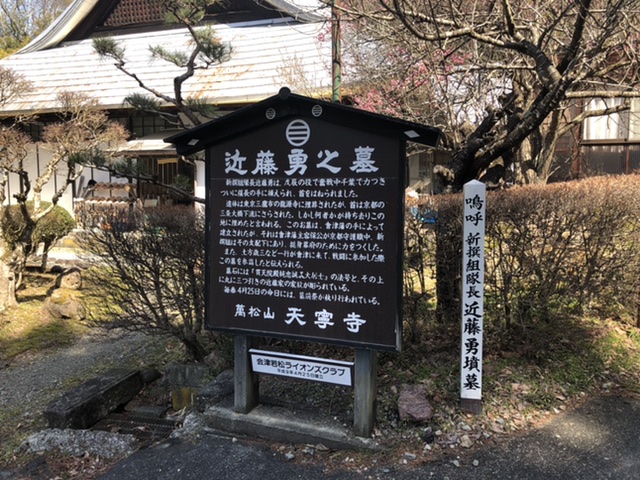この本を読んでいて、10年前に目にしたホーキングに関するガーディアンの記事を思い出した。以下に再録する。
http://www.guardian.co.uk/science/2011/may/15/stephen-hawking-interview-there-is-no-heaven
Stephen Hawking: 'There is no heaven; it's a fairy story' In an exclusive interview with the Guardian, the cosmologist shares his thoughts on death, M-theory, human purpose and our chance existence
Ian Sample, science correspondent guardian.co.uk,
Sunday 15 May 2011 22.00 BST Article history
Stephen Hawking dismisses belief in God in an exclusive interview with the Guardian.
A belief that heaven or an afterlife awaits us is a "fairy story" for people afraid of death, Stephen Hawking has said.
In a dismissal that underlines his firm rejection of religious comforts, Britain's most eminent scientist said there was nothing beyond the moment when the brain flickers for the final time.
Hawking, who was diagnosed with motor neuron disease at the age of 21, shares his thoughts on death, human purpose and our chance existence in an exclusive interview with the Guardian today.
The incurable illness was expected to kill Hawking within a few years of its symptoms arising, an outlook that turned the young scientist to Wagner, but ultimately led him to enjoy life more, he has said, despite the cloud hanging over his future.
"I have lived with the prospect of an early death for the last 49 years. I'm not afraid of death, but I'm in no hurry to die. I have so much I want to do first," he said.
"I regard the brain as a computer which will stop working when its components fail. There is no heaven or afterlife for broken down computers; that is a fairy story for people afraid of the dark," he added.
Hawking's latest comments go beyond those laid out in his 2010 book, The Grand Design, in which he asserted that there is no need for a creator to explain the existence of the universe. The book provoked a backlash from some religious leaders, including the chief rabbi, Lord Sacks, who accused Hawking of committing an "elementary fallacy" of logic.
The 69-year-old physicist fell seriously ill after a lecture tour in the US in 2009 and was taken to Addenbrookes hospital in an episode that sparked grave concerns for his health. He has since returned to his Cambridge department as director of research.
The physicist's remarks draw a stark line between the use of God as a metaphor and the belief in an omniscient creator whose hands guide the workings of the cosmos.
In his bestselling 1988 book, A Brief History of Time, Hawking drew on the device so beloved of Einstein, when he described what it would mean for scientists to develop a "theory of everything" ? a set of equations that described every particle and force in the entire universe. "It would be the ultimate triumph of human reason ? for then we should know the mind of God," he wrote.
The book sold a reported 9 million copies and propelled the physicist to instant stardom. His fame has led to guest roles in The Simpsons, Star Trek: The Next Generation and Red Dwarf. One of his greatest achievements in physics is a theory that describes how black holes emit radiation.
In the interview, Hawking rejected the notion of life beyond death and emphasised the need to fulfill our potential on Earth by making good use of our lives. In answer to a question on how we should live, he said, simply: "We should seek the greatest value of our action."
In answering another, he wrote of the beauty of science, such as the exquisite double helix of DNA in biology, or the fundamental equations of physics.
Hawking responded to questions posed by the Guardian and a reader in advance of a lecture tomorrow at the Google Zeitgeist meeting in London, in which he will address the question: "Why are we here?"
In the talk, he will argue that tiny quantum fluctuations in the very early universe became the seeds from which galaxies, stars, and ultimately human life emerged. "Science predicts that many different kinds of universe will be spontaneously created out of nothing. It is a matter of chance which we are in," he said.
Hawking suggests that with modern space-based instruments, such as the European Space Agency's Planck mission, it may be possible to spot ancient fingerprints in the light left over from the earliest moments of the universe and work out how our own place in space came to be.
His talk will focus on M-theory, a broad mathematical framework that encompasses string theory, which is regarded by many physicists as the best hope yet of developing a theory of everything.
M-theory demands a universe with 11 dimensions, including a dimension of time and the three familiar spatial dimensions. The rest are curled up too small for us to see.
Evidence in support of M-theory might also come from the Large Hadron Collider (LHC) at Cern, the European particle physics laboratory near Geneva.
One possibility predicted by M-theory is supersymmetry, an idea that says fundamental particles have heavy ? and as yet undiscovered ? twins, with curious names such as selectrons and squarks.
Confirmation of supersymmetry would be a shot in the arm for M-theory and help physicists explain how each force at work in the universe arose from one super-force at the dawn of time.
Another potential discovery at the LHC, that of the elusive Higgs boson, which is thought to give mass to elementary particles, might be less welcome to Hawking, who has a long-standing bet that the long-sought entity will never be found at the laboratory.
Hawking will join other speakers at the London event, including the chancellor, George Osborne, and the Nobel prize-winning economist Joseph Stiglitz.
Science, truth and beauty: Hawking's answers
What is the value in knowing "Why are we here?"
The universe is governed by science. But science tells us that we can't solve the equations, directly in the abstract. We need to use the effective theory of Darwinian natural selection of those societies most likely to survive. We assign them higher value.
You've said there is no reason to invoke God to light the blue touchpaper. Is our existence all down to luck?
Science predicts that many different kinds of universe will be spontaneously created out of nothing. It is a matter of chance which we are in.
So here we are. What should we do?
We should seek the greatest value of our action.
You had a health scare and spent time in hospital in 2009. What, if anything, do you fear about death?
I have lived with the prospect of an early death for the last 49 years. I'm not afraid of death, but I'm in no hurry to die. I have so much I want to do first. I regard the brain as a computer which will stop working when its components fail. There is no heaven or afterlife for broken down computers; that is a fairy story for people afraid of the dark.
What are the things you find most beautiful in science?
Science is beautiful when it makes simple explanations of phenomena or connections between different observations. Examples include the double helix in biology, and the fundamental equations of physics."
(再録終わり)
神は存在しない、死後の世界ももちろん存在しない、我々の存在は全くの偶然による。
では我々は何をすればいいのか? と問われてホーキングはこう答える。
(Interviewer) So here we are. What should we do?
(Hawking) We should seek the greatest value of our action.
10年前にこれを読んだときには、
seek the greatest value of our action
とは、全く漠然としているな、と思った。
しかし、あれから10年経った今は、これが正解のように思える。この漠然とした言葉は、要するに、「好きなように生きろ」ということなのだろう。何故なら、自分の人生で何がvaluableかは、自分が好きなように決めていいことなのだから。
やがて死ぬ その時までの 阿波踊り
『博士と彼女のセオリー』という映画は、映画館で一人で見た記憶がある。何か消化できない、すっきりしない映画だった、私には。ネットやウィキにも、現実にあったことを「美化して描いている」、あるいははっきり事実とは異なる「捏造である」という批判もある。現実には、ジェインとホーキングは美しく別れたのではなくて、激しい争いの末に別れた、らしい。
昔読んだ本の中に、ジェインがこう話しているのを見つけたことがある。重症筋無力症で衰えてゆくホーキングの果てしない疲労の続く世話をしているのは、この人生の後に神によって報われると私(ジェイン)が信じているからだけれども、それを信じていない無神論者のホーキングの世話をすることに意味があるのだろうか、と。
映画の中では、ジェインのキリスト教信仰とホーキングの無神論の対立など出ては来なかった。それはそうだろう、映画が成功して莫大な興行収入をあげるためには、一般大衆受けのしない無神論や無神論者の意見など出て来ないほうがいいに決まっているのだから。(映画の中ではジェインの「新しい恋」に重点を置いて、ホーキングとの離婚までを必然的な流れとして描いていて、ジェインの「確固たる信仰」については一切触れてはいない。)
I regard the brain as a computer which will stop working when its components fail. There is no heaven or afterlife for broken down computers; that is a fairy story for people afraid of the dark.
こんなことを映画の中でホーキングが話していたなら、信仰に拠って生きている人たち(西欧社会ではいまだに驚くほど多い)はこの映画を観には行かないだろう。
さて、その天国や死後の世界について、それらがどのように「歴史的に生み出されていったものなのか」を詳述したものが、
Bart Ehrmanの最新作、
『Heaven and Hell : A history of the Afterlife 』(2020)
である。
端的に言ってしまえば、天国や死後の世界について今日のキリスト教徒が思い描いているものは、キリスト(やパウロ)が決して述べたものではなく、後世の人々によって「適当に妄想されたもの」である、ということ。人は信じたいものを信じる、人は信じたいものを適当に創り上げる。
アーマンの他の本でもこれまで何度も指摘されていることだけれども、キリスト教というものがどれほど強くギリシャ思想・哲学に影響されていることだろうか。
新約聖書がギリシャ語で書かれていることは、単に当時の地中海地方の共通語がギリシャ語だったから、というよりは、キリスト教が(それは自由にギリシャ語を操るパウロによって方向づけられたといってもいいのだろうけれども)ギリシャ思想とユダヤ思想の「合成物」であるということを意味している。そこに、天国と地獄が生まれてくる下地があった。
P54~
The Invention of Hell and Heaven
There are obviously numerous similarities between the voyage to the afterlife of Odysseus and Aeneas, but one cannot help but be struck especially by the impressive differences. Some six or seven centuries after the Homeric epics, Virgil dose not populate Hades with shades that all experience the same boring and pleasure-free existence. He writes of hellish torments for some and heavenly glories for others. Most have to be punished for their sins before being given a second chance at life. Why such a change from Homer? What has led to this invention of heaven and hell?
It is hard to say what among the enormous changes in the political, social, and cultural worlds between seventh-century Greece and first-century Rome might have effected the shift in thinking. But it is relatively easy to see what happened in the realm of ethical thought. Equity had become an issue. Thinkers came to believe that no one can live a life of sin, hurting others, offending the gods, pursuing only self-aggrandizement, enjoying, as a result, wealth, influence, and pleasure, and then die and get away with it. No :
古代イスラエルの人々にとって、「死後の世界」など在りえなかった。よく言われるイスラエル人にとっての死後の世界(Sheol)とは、そもそもは「墓場」という単純な意味しかなかった。
P82~
Even if death is inevitable for the ancient Israelites, what is it? For most of the Hebrew Bible, death is what happens when life leaves a person. And so we have the prayer of the psalmist, lamenting to God what is certain to come: "When you take away their breath, they die and return to the dust"(Psalm 104:29). Here the person does not "go someplace"--other than back to the dust they came from. Humans were originally made from dust(Genesis 2:7) and that is where they return.
This is one key difference from the Greek thought represented best by Plato. Ancient Israelites did not subscribe to the view of the immortality of the soul. Souls are not inherently deathless, destined for an eternal existence. In ancient Hebrew thought, there was no "soul" in the Greek sense. This can be seen by the different terms used. The closest equivalent to the Greek /psychē/ is the Hebrew /nephesh/. The /nephesh/, though, is not a soul, set in contrast to the body. Hebrew anthropology was not dualistic (body and soul) but unitary. /Nephesh/ means something like "life force" or "life" or even "breath". It is not a substance that can leave a person and exist independently of the body. It is the thing that makes bodies live. When the body stops breathing, it becomes dead matter. In modern terms, when you stop breathing, your breath doesn't go somewhere. It just stops. So too with the Hebrew /nephesh/. The person is then dead.
(Snip)
The Jewish scriptures contain a variety of views about what happens to a person at death. Most commonly, a person who dies is simply said to have gone t "death"--a term used some thousand times in the Bible. Better known but far less frequent, a person's ultimate destination is sometimes called "Sheol," a term whose meaning and etymology are debated. It occurs over sixty times in the Hebrew Bible, and there is unanimity among critical scholars that in no case does Sheol mean "hell" in the sense people mean today. There is no place of eternal punishment in any passage of the entire Old Testament. In fact--and this comes as a surprise to many people--nowhere in the entire Hebrew Bible is there any discussion at all of heaven and hell as places of rewards and punishments for those who have died.
Probably most people who read the Bible think of Sheol as a Jewish kind of Hades, a shadowy place where everyone goes and all are treated the same, a banal and uninteresting netherworld where nothing really happens and people are, in effect, bored for all eternity. But in fact, in most passages of the Bible where Sheol is mentioned, it may well simply be an alternative technical term for the place where an individual is buried--that is, their grave or a pit.
Sheolと同様に、Gehennaという言葉も誤訳されて、その後の「地獄という概念の発展に寄与してしまった」。
P157~
It is highly unfortunate that sometimes English translations of the New Testament render the Greek word "Gehenna" as "hell." That conjures up precisely the wrong image for Bible readers today, making them think Jesus is referring to the underworld of fiery torment where people go for eternal punishment for their sins. That is not what Gehenna referred to at all. On the contrary, it was a place well known among Jews in Jesus's day. It was a desecrated valley outside of Jerusalem, a place literally forsaken by God.
The valley is mentioned several times in the Old Testament, first in Joshua 15:8, where it is called "the valley of the son of Hinnom," which in Hebrew is /gei ben Hinnom/. We don't know who Hinnom was, but his son apparently owned the valley at one point. A later reference calls it instead Hinnom's own valley--that is, in /gei-hinnom/. Later, that term, /gehinnom/, came to be Gehenna. It is normally identified as the ravines southwest of Old Jerusalem.
Scholars have long claimed that Gehenna was a garbage dump where fires were burned--which is why its "worm never dies" and its "fires never cease": there was always burning trash in there. As it turns out, there is no evidence for this claim; it can be traced to a commentary on the book of Psalms written by Rabbi David Kimhi in the early thirteenth century CE. Neither archaeology nor any ancient text supports the view. On the contrary, the place was notorious for ancient Jews not because it was a dump but because it had been a place where children had been sacrificed to a pagan god.
We are told in 2 Kings 23:10 that the Canaanite deity Molech was worshiped in "Topheth, which is the valley of Ben-hinnom"(=valley of the son of Hinnom=Gehenna), where even some Israelites had made "a son or daughter pass through fire as an offering" to him. Human sacrifice occurred elsewhere in the ancient world, but it was obviously anathema to the writers of the Hebrew Bible, and Gehenna was the place best known for the hideous practice. And so, according to the passage, when the good king Josiah instituted a religious reform, bringing the people of Judah back to the worship of Yahweh, the God of Israle, he "defiled" the place, making it impossible for child sacrifice to be practiced there.
アーマンによると、ヨセフスは紀元1世紀前後のユダヤ宗教について以下のように解説しているという。
P144~
The group called the Essenes, known to us from other sources, are usually thought to have been responsible for producing the famous Dead Sea Scrolls. They were a very pious separatist sect who believed in maintaining their own purity, in isolation from other, sinful Jews if possible, sometimes in monastic-like communities, According to Josephus, the Essenes held a very Greek view of the afterlife: that the body was impermanent and destined to disintegrate, but the soul was immortal and imperishable. After the death of the body, the soul would be released, and those who were virtuous would enjoy a very pleasant happily ever after.
The Pharisees are known to us from the New Testament and later rabbinic writings; they were focused on interpreting the Jewish law for their own times, providing detailed explanation of the ancient words of Moses for life in the present and working to preserve the holiness that the law demanded. According to Josephus, the Pharisees believed that after death good souls pass "into another body." This may sound to modern ears like reincarnation, but it is usually thought that Josephus means they held to the doctrine of resurrection: the soul would not remain naked but would be re-embodied. Wicked souls, on the other hand will "suffer eternal punishment."


























































